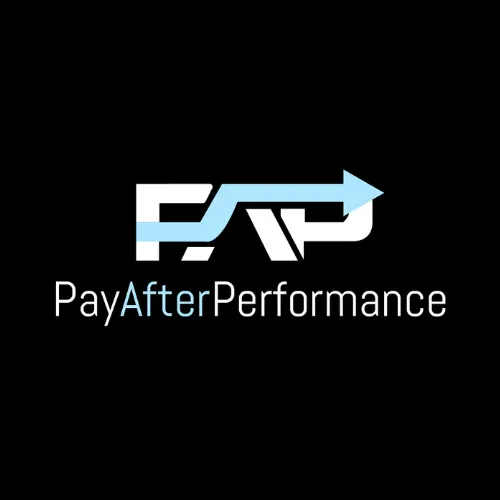Get a Credit
Analysis at
No Charge
Boost Your Credit Score
Established Track Record
Secure and Reliable Process
Assisting Clients Nationwide
Available 24/7
Request a Free Credit Analysis
We respect your privacy
Blogs

How to Prepare for Tax Season Without the Stress
"Preparation is the key to a stress-free tax season—start early, stay organized, and tackle it with confidence."
Tax season can often feel like an overwhelming time of year, but it doesn’t have to be. With the right approach, preparation, and mindset, you can handle your taxes efficiently and stress-free. Whether you're filing as an individual, freelancer, or business owner, being proactive and organized is key to making the process as smooth as possible. Here are some practical tips on how to prepare for tax season without feeling the stress.
1. Start Early
One of the most effective ways to reduce stress during tax season is to start preparing well in advance. Don’t wait until the last minute to gather your documents and file your taxes.

Set a timeline: Mark important dates on your calendar, like the IRS tax filing deadline (usually April 15th), and give yourself a few extra weeks for preparation. Aim to start at least a month before the deadline so that you have plenty of time to collect all necessary documents.
Avoid procrastination: The longer you wait, the more rushed and stressed you'll feel as the deadline approaches. Getting an early start helps to reduce last-minute panic and gives you time to address any issues that might arise.
2. Gather Your Documents Early
One of the main reasons tax season becomes stressful is scrambling to find all the necessary documents. Make sure you have everything you need in one place well before you start filing.
Income documents: This includes W-2 forms (for employees), 1099 forms (for freelancers, contractors, or anyone receiving non-employee income), and other forms reporting income like interest, dividends, or investment gains.
Deductions and credits: Gather any receipts or documents that support deductions or credits you plan to claim. Common examples include medical expenses, mortgage interest, student loan interest, and charitable donations.
Previous tax returns: It’s helpful to have your previous year’s tax return as a reference. This can provide insight into what worked last year and help you avoid making the same mistakes.
Keep everything organized in a tax folder or file so that you can easily access your documents when you need them.
3. Understand Your Tax Situation
It’s crucial to know what type of tax filer you are and how it impacts your filing process. If you’re self-employed, a freelancer, or a business owner, your tax situation will differ from someone who works a regular 9-to-5 job. Understanding your situation will help you determine what forms you need and which deductions or credits apply to you.
Freelancers or business owners: You may need to track business expenses, mileage, and receipts for deductions. You’ll also need to file additional forms like the Schedule C for business income and expenses.
Employees: Make sure your W-2 forms reflect the correct income, taxes withheld, and other information. Double-check that your withholding aligns with your tax obligations.
If you’re unsure about your tax situation, consider working with a tax professional to help guide you through the process.
4. Use Tax Software or Hire a Professional
Tax software is an excellent option for those who feel comfortable filing their taxes on their own. These tools are user-friendly, often have step-by-step guidance, and automatically perform calculations for you, making the filing process much easier. Many popular tax software options offer free filing for simple returns.
Tax software: Popular options include TurboTax, H&R Block, and TaxSlayer. These tools are great for individuals with straightforward tax situations.
Hiring a professional: If you have a more complex tax situation (e.g., freelance work, business ownership, rental income), it might be worth hiring a tax professional to help you navigate the process. Professionals can provide expert advice and ensure your taxes are filed correctly, which can reduce the risk of errors and audits.
5. Take Advantage of Deductions and Credits
Tax deductions and credits are an excellent way to reduce your tax liability, but many people miss out on these benefits simply because they don’t know what they’re eligible for. Familiarize yourself with common deductions and credits to ensure you’re maximizing your savings.
Common deductions: These include things like mortgage interest, student loan interest, charitable donations, medical expenses, and state/local taxes.
Common credits: Tax credits can directly reduce the amount of taxes you owe. Examples include the Earned Income Tax Credit (EITC), the Child Tax Credit, and the American Opportunity Credit for education expenses.
A tax professional can help you identify deductions and credits you may have missed or overlooked in the past.
6. Double-Check Your Information
Mistakes on your tax return can lead to delays, penalties, or audits. To minimize the risk of errors, double-check all the information you enter before submitting your return.
Verify your Social Security number: Make sure the number is correct for all dependents you list on your tax return.
Review income and deductions: Cross-check the amounts on your forms (W-2, 1099, etc.) with your records. Ensure that deductions are supported by receipts or other documentation.
Double-check your bank information: If you’re expecting a refund, make sure your bank account number and routing number are correct to avoid delays in receiving your refund.
7. File on Time (Or File for an Extension)
Make sure you file your tax return by the due date, typically April 15th, to avoid penalties and interest. If you’re unable to complete your tax return on time, consider filing for an extension. An extension gives you an additional six months to file, but it does not extend the time for paying taxes owed.
Extension: You can file for an extension using Form 4868. It’s important to note that this only extends the time to file your return, not the time to pay your taxes. If you owe taxes, you should pay them by the original deadline to avoid interest and penalties.
Pay as you go: If you can’t pay your full tax bill at once, consider setting up a payment plan with the IRS or exploring other options to avoid additional penalties.
8. Keep Records for Future Reference
Once you’ve filed your taxes, keep your tax documents for at least three years, which is the standard period for the IRS to audit a return. Retaining this information will make next year’s tax season easier to navigate and ensure you’re prepared in case you need to reference past returns.
Organize your documents: Create a filing system (either physical or digital) for tax-related records, including receipts, tax forms, and correspondence with the IRS.
Conclusion
Tax season doesn’t have to be a stressful time. By starting early, staying organized, and knowing what to expect, you can handle your taxes with ease and confidence. Whether you choose to file on your own or enlist the help of a tax professional, taking the right steps now will save you time, money, and unnecessary stress. With the right preparation, tax season can be just another part of your year rather than a dreaded event.
OUR SERVICES
Free Credit Analysis

Credit Education
Empower yourself with our expert credit education resources.

Credit Restoration
Regain your financial health with our effective strategies and tailored solutions.

Future Objectives
Prepare for the future confidently
with our strategic financial
planning services.

Credit Report Evaluation
Gain valuable insights into your credit history and pinpoint areas for enhancement.

Continuous Credit Monitoring
Stay updated with live notifications regarding changes to your credit profile.

Enhance Credit Rating
Achieve higher credit scores with personalized strategies designed for your financial goals.
Do You Have Any Queries?
Feel welcome to contact us at your convenience.
How Pay After Performance Works

Thorough credit analysis
In-depth assessment of your credit report to offer comprehensive insights and strategic suggestions for enhancement.
Step 1

Customized improvement plan
Customized strategies tailored to your credit situation to effectively improve financial health and achieve long-term goals.
Step 2

Ongoing credit monitoring
Consistently monitor progress and adjust plans to ensure effective credit management aligned with your financial goals.
Step 3

Personalized financial advice
Receive personalized recommendations and insights to optimize your credit status and achieve enduring financial success.
Step 4

© 2024 PayAfter Performance. All Rights Reserved.
Facebook
Instagram
LinkedIn
Youtube